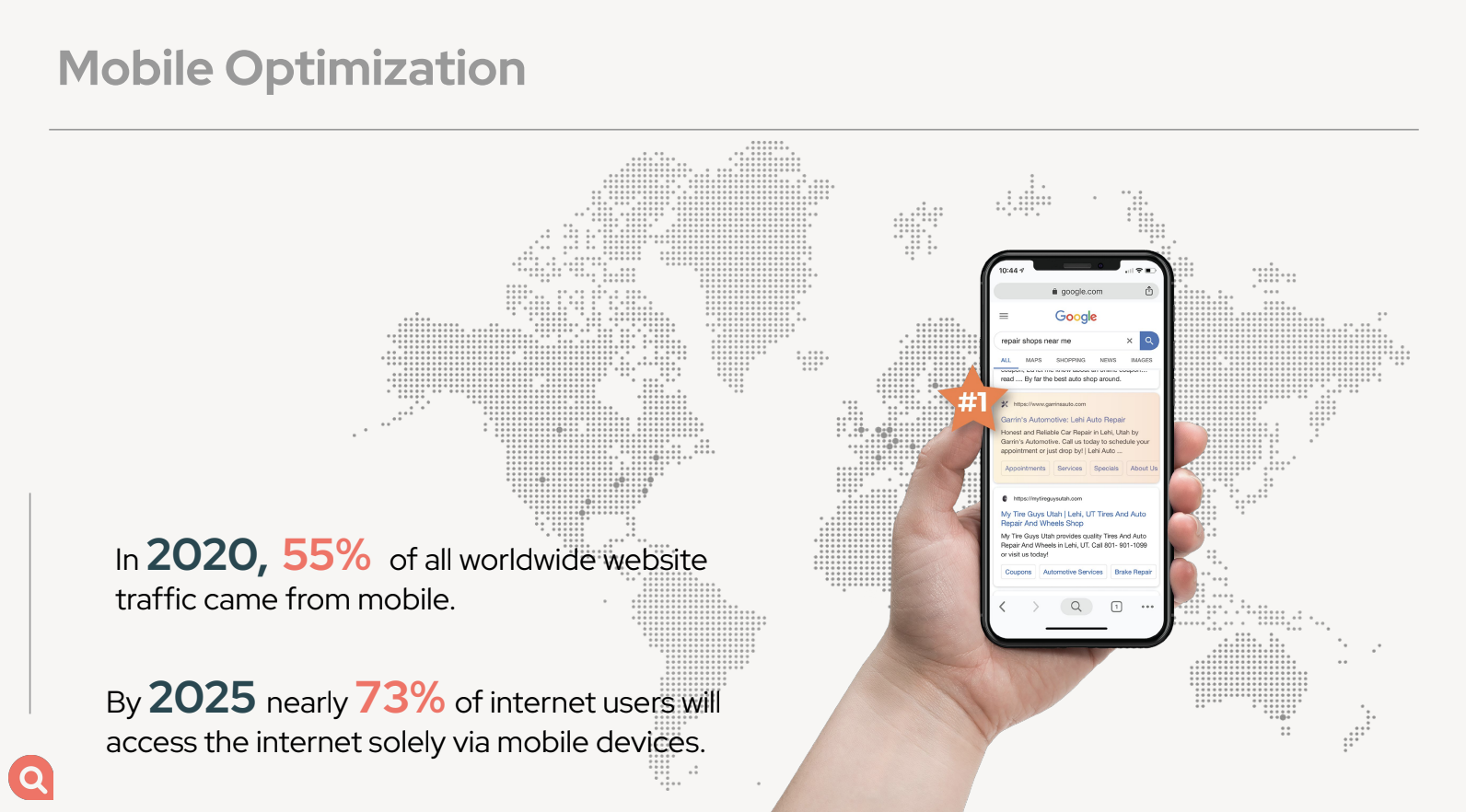Are you looking to create an SEO strategy for your business?
Don’t know where to start?
Creating and executing your first SEO strategy can seem daunting and complicated. But, with the right resources, businesses of any size can see the growth they are looking for.
On August 10, I moderated a webinar by Matt Salzl, VP of Sales at Manta.
Salzl showed 10 things every SEO campaign needs to succeed.
Here is a summary of the webinar. To access the entire presentation, complete the form.
1. Acknowledge The Importance Of SEO In Your Business
Organic searches and local listings make up the majority of clicks on Google.
SEO gets businesses to rank at the top of both.
Understanding how SEO works for your business helps you plug it into your business strategy in the right places.
[Learn All The Benefits Of SEO] Instantly access the webinar →
2. Know Your Audience
A successful SEO campaign begins with understanding who you are and who you’re explicitly marketing to.
Here’s how you can understand your audience better:
- Create buyer personas.
- Understand how your product benefits them.
- Define your value proposition.
- Use analytics to understand your traffic & demographics.
- Learn from the competition.
- Know if you’re targeting a local or national audience.
3. Define Your Business Goals
Determine where you want to be one month, three months, six months, a year, two years, and five years from now.
Put benchmarks from a business standpoint and get a bigger picture of why you need SEO and where it plugs in.
When you outline your business goals, you not only know what you’re working towards, but you’ll also be able to determine your SEO budget, types of work, and types of campaigns that will best help your business succeed.
4. Determine The Intent Of Your Website
Once you know your business goals, it’s time to decide how your website drives you to those goals.
For your SEO campaign to succeed, you need to clarify the purpose of your website.
[Learn The Purposes You Can Choose From] Instantly access the webinar →
5. Research & Use Relevant Keywords
Once you have an idea of your website’s purpose, ask yourself why the searcher is looking for your site. What is the searcher’s intent?
Is it to find, learn, or buy?
The different kinds of intent are:
- Navigational.
- Informational.
- Research.
- Transactional.
[Unlock What Each Intent Means] Instantly access the webinar →
6. Optimize Your Local Presence
Local search growth has been increasing tremendously since 2020.
If you have a local brick-and-mortar store, and you have a storefront, you’ll need to work on your:
- Google Map Pack & Maps integrations on your website.
- Google Business Profile.
- Review Management.
- Proximity optimization.
- Relevance optimization.
- Prominence optimization.
- Local Business Citations submissions.
- Classified Business Listing submissions.
Remember that the primary tool for optimization is content. But where’s the best place to start?
[Learn How To Get Started] Instantly access the webinar →
7. Fix Website Issues & Optimize For Mobile
If you feel no one’s finding you or your website, you may have overlooked the technical SEO aspects of it: one of which is mobile optimization.
So, make sure your site is optimized not only for desktop but also for mobile.
 Manta, August 2022
Manta, August 2022
If you have a local business, “near me” searches work best when people use their mobile devices.
[Learn How To Optimize For Mobile] Instantly access the webinar →
8. Know The Types Of Content That Rank Well
Make sure your content reflects the intent of your website and what your users want.
Consider writing or creating:
- Longer content.
- Repurposed content.
- Direct answers.
- Video and image carousels.
- Tools and widgets.
- Product listings.
[Get Tips For Making Engaging Content] Instantly access the webinar →
9. Include A Backlink Strategy
Just like SEO, backlinking is not dead. It has just evolved.
Here are the strategies to look forward to when it comes to link building:
- Anchor text: What word in your content is your anchor for your link?
- Link content: Make sure your link is relevant to the content around it.
- Trustworthy links: Link only to secure websites with high trust scores.
[Learn All Current Backlink Strategies] Instantly access the webinar →
10. Get More Reviews
More and more people are reading reviews before they move forward with your product or service.
The more reviews your business gets, the higher your ranking will be, so try reaching out to past or current customers for reviews.
[Slides] Getting Started In SEO: 10 Things Every SEO Strategy Needs To Succeed
Here’s the presentation:
Join Us For Our Next Webinar!
Level Up Your Content Strategy – 5 Steps to SEO Success
Do you know what it takes to scale and run a successful enterprise SEO strategy? We do, and we’re going to show you!
Learn what it takes to create, scale, and measure content that delivers the best ROI for your SEO efforts.
Image Credits
Featured Image: Paulo Bobita/Search Engine Journal
